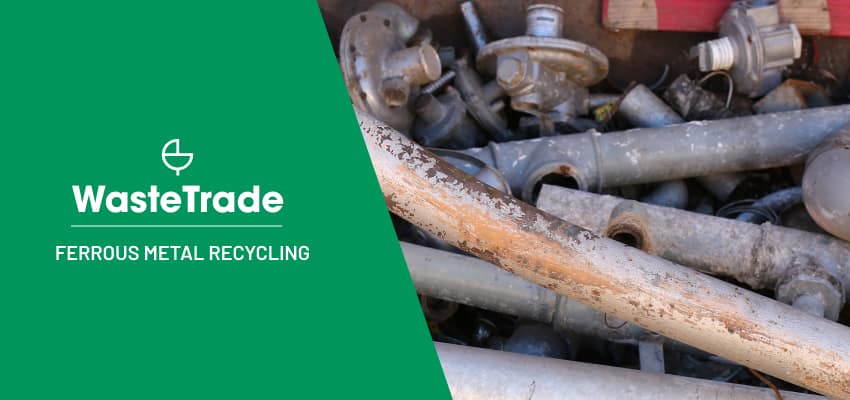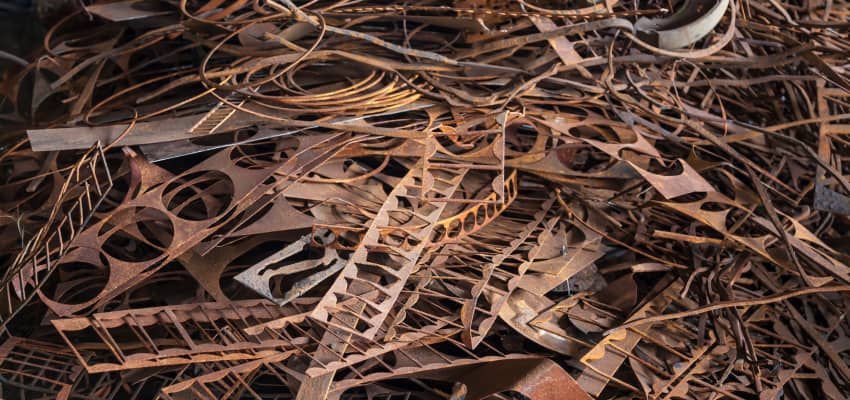Ferrous Metal Recycling

What is Ferrous Metal
Ferrous metals are metals that contain iron. They have magnetic properties and are typically strong and durable. The most common ferrous metals include steel and iron.
Ferrous metal recycling is the process of recycling iron and steel-based products. Ferrous metals contain a significant amount of iron, and they are magnetic. These metals are commonly used in construction, transportation, and manufacturing industries. Ferrous metals are highly recyclable and can be recycled indefinitely without losing their quality.
How is Ferrous Metal Recycled?

Ferrous metal recycling is a straightforward process. The first step is to collect and sort ferrous metal waste. Once sorted, the metal is transported to a recycling facility where it is processed. The metal is shredded into small pieces and melted down in a furnace. The molten metal is then poured into moulds to create new products.
The recycling process for ferrous metals saves a significant amount of energy and reduces greenhouse gas emissions. Recycling steel, for example, uses 74% less energy than producing it from raw materials. Recycling iron saves 56% of the energy required to produce it from ore. Ferrous metal recycling is an important part of waste management, as it conserves natural resources and reduces the negative impact on the environment.
List of Ferrous Metals

The following metals are commonly classified as ferrous metals:
1. Steel
2. Iron
3. Carbon Steel
4. Cast Iron
5. Wrought Iron
6. Alloy Steel
Ferrous Metal Recycling Services
Businesses that produce significant amounts of ferrous metal waste can use the WasteTrade online marketplace to access reliable and sustainable recycling services for their scrap. WasteTrade connects waste producers with a global network of fully verified and accredited recyclers to help them turn their waste streams into revenue streams. WasteTrade handles the haulage of material and generates all compliance documentation to remove these burdens from our users, and to make sustainable recycling services easily accessible for all.
Conclusion
Ferrous metal recycling is an important part of waste management and a circular economy. Recycling ferrous metals conserves natural resources, reduces energy consumption and greenhouse gas emissions, and saves businesses money. By choosing to recycle their ferrous metal waste, businesses can make a significant contribution to a sustainable future.
